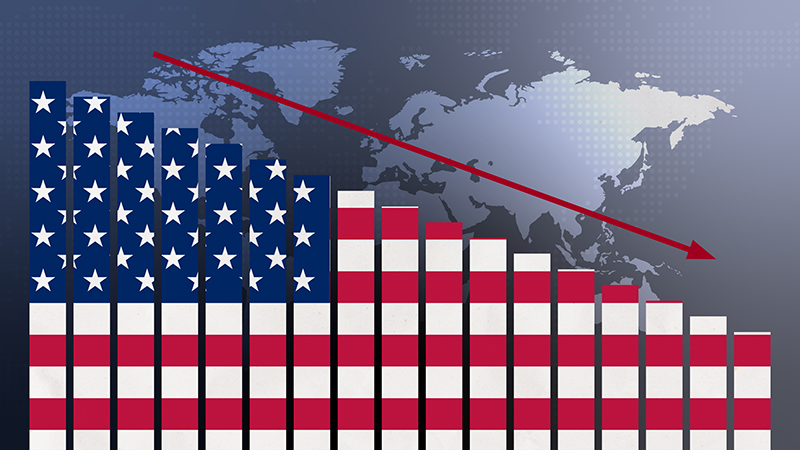The Financial Conduct Authority has been accused of leaving the platform market with an uneven playing field after it indicated it was likely to pursue a ban on exit fees only to yank its consultation due to Covid.
Both Interactive Investor and Hargreaves Lansdown had dropped their exit fees in the period since the interim platform market study was published in July 2018. But rivals, like AJ Bell, had so far refused to move despite a ban appearing to be a done deal.
Last week, the FCA announced it was abandoning the consultation, which had closed to feedback in June 2019, with final remedies due to be published in Q1 2020.
Interactive Investor ‘bewildered’ by FCA decision
Interactive Investor chief executive Richard Wilson (pictured) immediately accused the FCA of sneaking the news out on a Friday afternoon and said he was “bewildered” by the decision. Interactive Investor scrapped exit fees in November 2018, months after the interim platform market study was published, and dropped the fees for Alliance Trust Savings investors when it bought that platform in 2019.
“Exit fees are a recipe for rip offs and a genuine barrier to consumers seeking better value for money – they should have been banned,” Wilson said in a press release issued just over an hour after the FCA made its announcement.
“The FCA rightly points out that the direction of travel in the industry has been away from exit fees, in large part because Interactive Investor and Hargreaves Lansdown have done away with them. But there are still platforms out there that have grown far too complacent, relying on customer inertia and hefty penalties.”
Hargreaves Lansdown personal finance analyst Sarah Coles describes the FCA decision as a “missed opportunity” saying investors should not have to pay a penalty for trying to do better with their money.
See also: Hargreaves ‘throws down the gauntlet’ with exit fees U-turn
FCA has created an uneven playing field for early movers
Lang Cat consultant Mike Barrett reckons the FCA has created an uneven playing field by canning its work on exit fees.
“If you were a platform, I think there was no doubt when you read that original report that came out of the platform market study that the time was up for exit fees.”
As a result, Interactive Investor and Hargreaves “took the moral high ground” and went early on dropping the fees, Barrett says.
“I’m sure Hargreaves wouldn’t say on the record they wish they could turn back the clock. But if they were doing that simply because of regulatory pressure that regulatory pressure has now gone away.”
AJ Bell, one of Hargreaves Lansdown’s and Interactive Investor’s main competitors, will be able to continue charging the fees, he says.
Before Friday’s announcement, AJ Bell had been expecting the FCA to outline a position on exit fees that would cover the whole market, not just platforms, a spokesperson told Portfolio Adviser. “We continually monitor our market position and the FCA’s latest decision on exit fees will feed into that.”
See also: AJ Bell and Hargreaves hail DFM inclusion in exit fee ban
Doubts platforms will move in the right direction without regulatory pressure
The FCA argued in its announcement about the consultation that Hargreaves Lansdown and Interactive Investor dropping exit fees had represented a “marked shift in the market away from exit fees”.
But Altus Consulting platforms director Ben Hammond says there has been little movement recently with Hargreaves Lansdown’s announcement taking place over a year ago in September 2019.
Barrett thinks it is likely exit fees will remain in place without regulatory pressure.
“Before the FCA did their announcement last week, those who were charging exit fees clearly thought that was something they were comfortable with doing even under the likelihood of an imminent ban. They weren’t seeing any kind of pressure from their clients or their customers to remove the exit fees.”
Hammond says even though the FCA has said it will monitor the situation, re-starting the consultation, if required, would not be an overnight activity.
Was the platform market study all for nothing?
The dropping of the exit fee consultation also raises questions about the achievements of the entire market study.
Hammond describes the simplification of platform transfers (PS19/29) as now the only thing of any worth that’s come out of the market study.
Barrett says while he understands work needs to be reprioritised due to Covid, the consultation on exit fees had closed in June 2019 and their final recommendations were due to be published around the time Covid hit the UK. “So they must have had that work, pretty much ready to go.”
The FCA had already faced criticism for watering down its recommendations in the final report, which was published in March 2019 with the resulting consultation closing three months later in the weeks after the Woodford Equity Income fund suspension.
The regulator was accused of being on the back foot at the time because its final market study report had concluded platform buy lists “appear to help investors pick well-performing funds” – an assertion that the Woodford suspension undermined.
See also: FCA on the back foot as platform study closes in midst of Woodford saga
The case for and against exit fees
CWC Research managing director Clive Waller says there are arguments in favour of exit fees.
“If you want total transparency of charges and you do not want cross subsidy, you have to allow exit charges. Quite simply, exiting incurs a small cost,” Waller says.
“It is a minor point as exit costs are small, but the principle is important.”
AJ Bell chief executive Andy Bell made a similar argument in an interview with Portfolio Adviser saying shareholders or existing clients would have to pick up the tab if there was an exit fee ban.
But some platforms, like Fidelity Personal Investing and Vanguard, have never charged exit fees.
Fidelity International global head of personal investing and advisory Stuart Welch says investors shouldn’t be obstructed from choosing the best platform for their needs. Fidelity’s platform goes so far as to cover the cost of exit fees, up to £500, for customers transferring to it, Welch notes.
See also: Andy Bell: ‘I don’t think it’s the cheapest that’s going to win this game’











